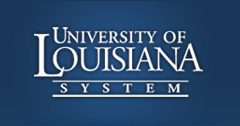Event Title
Costly Signaling and Moral Behavior
Faculty Mentor
Jack Palmer
Location
Memorial Gym
Start Date
20-4-2012 2:30 PM
End Date
20-4-2012 3:30 PM
Description
Costly Signaling Theory (CST) explains costly, altruistic acts by arguing that such individually problematic acts may benefit the altruist indirectly by establishing a positively perceived reputation for the individual. The purpose of this study was to compare undergraduate participants from conservative Christian backgrounds in the strength of their convictions (religiosity) to these costly signals, as well as other seemingly related beliefs, on a 7-point Likert scale. Using SPSS, significant correlations were found between religiosity and several types of altruism. With regards to religiosity, the strength of correlations with types of altruism increased as rewards for altruism became less apparent.
Costly Signaling and Moral Behavior
Memorial Gym
Costly Signaling Theory (CST) explains costly, altruistic acts by arguing that such individually problematic acts may benefit the altruist indirectly by establishing a positively perceived reputation for the individual. The purpose of this study was to compare undergraduate participants from conservative Christian backgrounds in the strength of their convictions (religiosity) to these costly signals, as well as other seemingly related beliefs, on a 7-point Likert scale. Using SPSS, significant correlations were found between religiosity and several types of altruism. With regards to religiosity, the strength of correlations with types of altruism increased as rewards for altruism became less apparent.

Comments
Poster presentation